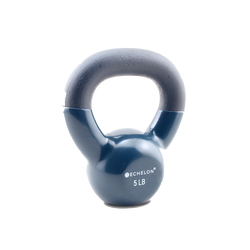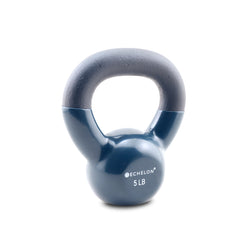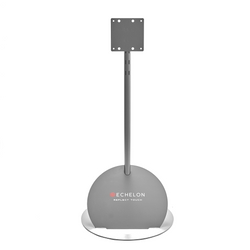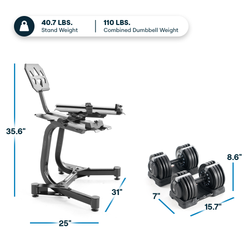World Heart Day Awareness: Steps to prioritize your heart health

World Heart Day is celebrated every year on September 29th to increase awareness about heart health and the importance of a healthy lifestyle. As we look ahead to this year's World Heart Day, it's important to take steps to prioritize your heart health. In this blog post, we'll explore some of the ways you can reduce your risk of heart disease, including eating a healthy diet, exercising regularly, and reducing stress. Here, we'll take a look at how each of these can help you stay healthy and reduce your risk of heart disease.
Why Heart Health is Important
Heart health is crucial for maintaining a long and healthy life. Our hearts work tirelessly to pump oxygen-rich blood throughout our bodies, providing the necessary nutrients and oxygen to all of our vital organs. When our hearts are not functioning optimally, it can lead to serious health complications, such as heart disease, high blood pressure, and even heart attacks.
Maintaining a healthy heart is especially important for those who are new to fitness or looking to improve their overall health. By prioritizing heart health, individuals can reduce their risk of developing cardiovascular diseases and improve their overall quality of life.
Additionally, focusing on heart health can have a positive impact on other areas of our well-being. It can help increase our energy levels, improve our mood, and boost our mental clarity. By taking care of our hearts, we are taking care of ourselves holistically.
Making Simple Dietary Changes for Better Heart Health
Making simple dietary changes is an essential part of improving heart health. By making conscious decisions about what we eat, we can support our heart's function and reduce the risk of heart disease. Here are some practical tips to help you make simple dietary changes for better heart health.
First, aim to incorporate more fruits and vegetables into your diet. These nutrient-rich foods are packed with antioxidants, vitamins, and minerals that promote heart health. Try adding a colorful variety of fruits and vegetables to each meal and snack.
Second, choose whole grains over refined grains. Whole grains such as oats, quinoa, and brown rice are high in fiber and can help lower cholesterol levels. Swap out refined grains like white bread and pasta for their whole grain counterparts to improve heart health.
Third, opt for lean protein sources. Reduce your consumption of red meat and choose leaner options like poultry, fish, beans, and tofu. These protein sources are lower in saturated fat and cholesterol, which can help prevent heart disease.
Finally, limit your intake of saturated and trans fats. These fats can raise cholesterol levels and increase the risk of heart disease. Replace butter and margarine with healthier alternatives like olive oil or avocado oil, and choose low-fat dairy products instead of full-fat options.
Remember, making simple dietary changes doesn't mean sacrificing flavor. Explore different herbs and spices to add taste to your dishes, and experiment with new recipes that prioritize heart-healthy ingredients. By making these small changes to your diet, you can significantly improve your heart health and overall well-being.
Exercise and Physical Activity for Heart Health
Exercise and physical activity are essential for maintaining a healthy heart. Engaging in regular exercise can help strengthen the heart muscle, improve circulation, and reduce the risk of heart disease. It is recommended to aim for at least 150 minutes of moderate-intensity aerobic activity or 75 minutes of vigorous-intensity aerobic activity each week, along with muscle-strengthening activities on two or more days.
For those who are new to fitness, starting slowly and gradually increasing the intensity and duration of exercise is important. Walking, jogging, cycling, swimming, and dancing are all great options for cardiovascular exercise. Find activities that you enjoy and incorporate them into your routine to make exercise more enjoyable and sustainable.
In addition to aerobic exercise, incorporating strength training exercises is crucial for overall heart health. Building muscle helps to burn calories, improve metabolism, and enhance overall cardiovascular function. Try incorporating resistance training exercises using free weights, resistance bands, or bodyweight exercises like push-ups, squats, and lunges.
Remember, exercise doesn't have to be complicated or time-consuming. Even small changes, such as taking the stairs instead of the elevator or going for a brisk walk during your lunch break, can make a significant difference in improving heart health.
Regular physical activity not only benefits your heart but also has a positive impact on your mental and emotional well-being. Exercise releases endorphins, which are natural mood-boosting chemicals that can help reduce stress and anxiety.
Importance of Stress Management
Stress is a common aspect of modern life, but it can have a significant impact on our heart health. When we experience stress, our bodies release stress hormones, such as cortisol, which can elevate blood pressure and increase the risk of heart disease. That's why it is crucial to prioritize stress management as part of our heart health journey.
Stress management techniques can help lower blood pressure, reduce heart rate, and improve overall cardiovascular function. Engaging in activities like meditation, deep breathing exercises, and yoga can help activate the body's relaxation response, promoting a sense of calm and reducing stress levels.
In addition to these techniques, finding healthy outlets to relieve stress is essential. Engaging in hobbies, spending time with loved ones, and participating in activities that bring joy and relaxation can help counteract the negative effects of stress on our hearts.
It is also important to recognize the role that lifestyle choices play in stress management. Prioritizing healthy sleep habits, maintaining a balanced diet, and exercising regularly can all contribute to better stress management and improved heart health.
By managing stress effectively, we can not only protect our hearts but also enhance our overall well-being. Taking time to address stress in our lives is an investment in our long-term health and happiness. So, make stress management a priority and watch as your heart health improves.
Monitoring Heart Health with Regular Check-Ups
Regular check-ups are an important aspect of maintaining heart health. These appointments provide an opportunity for healthcare professionals to assess your cardiovascular health, identify potential risk factors, and catch any potential issues early on. By monitoring your heart health regularly, you can stay proactive and take the necessary steps to prevent heart disease.
During a check-up, your healthcare provider may perform various tests, such as checking your blood pressure, cholesterol levels, and blood sugar levels. These tests can help identify any signs of high blood pressure, high cholesterol, or diabetes, which are common risk factors for heart disease. Additionally, they may listen to your heart and lungs, assess your weight and body mass index (BMI), and discuss your lifestyle habits to gain a holistic understanding of your heart health.
Regular check-ups also provide an opportunity to discuss any concerns or symptoms you may be experiencing. Whether you're noticing chest pain, shortness of breath, or palpitations, sharing this information with your healthcare provider is crucial for proper diagnosis and treatment.
Setting Realistic Goals for a Healthy Heart
Setting realistic goals is crucial for achieving and maintaining a healthy heart. When it comes to heart health, it's important to approach goal-setting with a balanced and practical mindset. Setting unrealistic goals can lead to frustration and discouragement, while setting achievable goals allows for progress and motivation.
When setting goals for a healthy heart, it's essential to be specific and measurable. Rather than setting a vague goal like "improve heart health," try setting specific goals such as "reduce LDL cholesterol levels by 10% in six months" or "increase aerobic exercise to 30 minutes per day, five days a week." These specific goals provide clear targets and allow you to track your progress along the way.
Additionally, it's important to set realistic timelines for achieving these goals. Rome wasn't built in a day, and neither will your heart health be completely transformed overnight. Set achievable timelines that give you enough time to make gradual changes and see sustainable progress.
Furthermore, it's crucial to consider your individual circumstances and limitations when setting goals. Everyone's journey to better heart health is unique, and what works for one person may not work for another. Take into account factors such as your current fitness level, lifestyle, and any medical conditions you may have. Set goals that are tailored to your individual needs and abilities.
Remember, setting realistic goals for a healthy heart is not about perfection. It's about making progress and taking steps in the right direction. Celebrate your achievements along the way and adjust your goals as necessary. By setting realistic goals, you can create a roadmap for success and ensure long-term improvements in your heart health.
Staying Motivated and Committed to Your Heart Health Plan
Maintaining motivation and commitment to your heart health plan can sometimes be challenging, especially when life gets busy. However, staying on track is crucial for long-term success and optimal heart health. Here are some tips to help you stay motivated and committed to your heart health plan:
1. Set short-term and long-term goals: Break down your heart health journey into smaller, achievable goals. Celebrate your progress along the way, and keep your eyes on the long-term benefits of a healthier heart.
2. Find an accountability partner: Share your goals and progress with a friend or family member who can provide support and encouragement. Having someone to hold you accountable can help you stay motivated even when you face obstacles.
3. Reward yourself: Treat yourself when you reach milestones in your heart health journey. Whether it's a small indulgence or a special activity, rewarding yourself can provide an extra incentive to stay committed.
4. Keep a journal: Documenting your progress and emotions can help you stay motivated. Reflect on your achievements, challenges, and how far you've come. Use your journal as a source of inspiration and motivation during difficult times.
5. Mix up your routine: Avoid boredom by incorporating variety into your heart-healthy habits. Try new recipes, explore different exercise routines, or experiment with stress management techniques. Keeping things interesting can help prevent monotony and maintain your enthusiasm.
6. Join a community: Seek out support from like-minded individuals who are also prioritizing their heart health. Online forums, social media groups, or local wellness groups can provide a sense of belonging and inspiration.
Remember, staying motivated and committed to your heart health plan is a journey. Embrace the process, be kind to yourself, and stay focused on the long-term benefits of a healthier heart.
Tips for Busy Individuals to Incorporate Heart Health into Daily Routine
As busy individuals, it can sometimes feel overwhelming to prioritize our health, especially when it comes to our heart health. However, with a few simple strategies, you can easily incorporate heart-healthy habits into your daily routine, even with a hectic schedule.
Firstly, start by scheduling regular breaks throughout your day. Whether it's a five-minute walk, stretching, or deep breathing exercises, taking short breaks to move and relax can help reduce stress and improve circulation. These mini wellness breaks can be incorporated into your work schedule, during your commute, or even while running errands.
Next, try to make healthy choices when it comes to meals and snacks. Plan your meals ahead of time, and opt for heart-healthy options such as pre-made salads, fruit, nuts, and whole-grain snacks. Keep healthy snacks on hand, such as carrot sticks or almonds, to avoid reaching for unhealthy options when hunger strikes.
Another way to incorporate heart health into your daily routine is by multitasking. For example, you can listen to a podcast or an audiobook while taking a walk or doing household chores. This way, you're taking care of your heart health while also staying entertained or getting things done.
Lastly, don't forget to prioritize sleep. A good night's rest is essential for heart health and overall well-being. Establish a bedtime routine that allows for sufficient sleep, and try to stick to it as much as possible. Creating a relaxing environment in your bedroom, such as dimming the lights and turning off electronic devices, can help signal your body that it's time to wind down.












































































